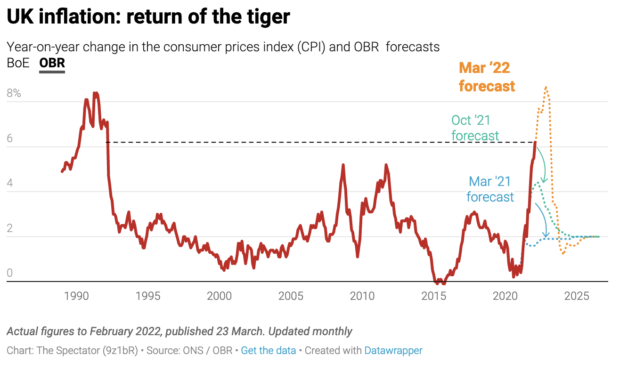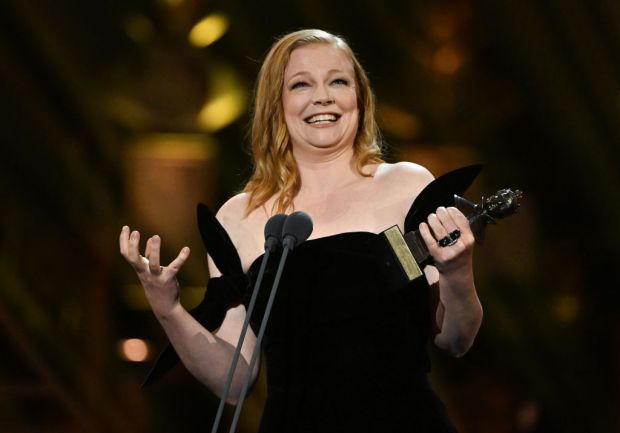Rishi Sunak shared a delightful moment of honesty on the Today programme on Thursday. Mishal Husain asked him how households will cope if, as the Office for Budget Responsibility has forecast, energy bills rise by a further £830 a year – on top of the rises already due to take effect in April. No, no, no, said the Chancellor, you can’t believe the OBR forecast on energy prices: ‘They just take what the market expectation is at a given time, and since they closed their forecast actually the forecast for energy bills in the autumn has come down by £400.’
It was a fair point. Except, if the Chancellor doesn’t think he can trust OBR forecasts for energy prices six months in advance, why did he, in his spring statement yesterday, reel out the OBR forecasts for economic growth for up to five years ahead? He told us, for example, perfectly straight-faced that the OBR thinks the economy will grow by 1.7 per cent in 2026. Are they sure that isn’t 1.8 per cent?

Like all chancellors, Sunak goes along with economic forecasts when it suits him – in spite of the appalling record of economic forecasters, government ones especially. Remember, for example, the Treasury telling us in May 2016 that unemployment would rise by 500,000 to 800,000 by 2018 if we voted for Brexit? In the event, unemployment fell and employment reached a record level. Economic forecasters make Sage’s Covid projections look accurate.
The Chancellor deserves some plaudits for admitting, on live radio, that economic forecasting is essentially a waste of time. He deserves less praise for using those very same forecasts to try to pre-announce a reduction in the basic rate of income tax for 2024. What he couldn’t do was to answer Husain’s killer question: ‘If it is all so uncertain that you can’t even say what energy bills are going to be like in six months’ time then how can you promise a tax cut in two years’ time?’
Sunak has little idea of what the public finances will look like in 2024. He has no idea how the war in Ukraine will play out, whether we will have a resurgence of Covid or suffer some other black swan event, one that might undermine his financial plans and lead to the government taking on yet more debt. He has no idea how global trade will recover from the pandemic, or whether energy prices will rise and fall. He really hasn’t the faintest clue as to whether he will have fiscal headroom to bring in a penny cut to income tax or not – or whether he might feel like raiding our pockets as he is doing in two weeks’ time when the National Insurance rise comes into effect.
Of course decisions have to be based on something. In the case of the penny cut in the basic rate, that something was raw politics. Sunak wants us to be focused on a tax cut far into the future when, in reality, we are about to suffer a hefty tax rise just as the cost of living skyrockets. Few taxpayers, I suspect, will be so foolish as to be taken in.
Got something to add? Join the discussion and comment below.
Get 10 issues for just $10
Subscribe to The Spectator Australia today for the next 10 magazine issues, plus full online access, for just $10.



















Comments
Don't miss out
Join the conversation with other Spectator Australia readers. Subscribe to leave a comment.
SUBSCRIBEAlready a subscriber? Log in